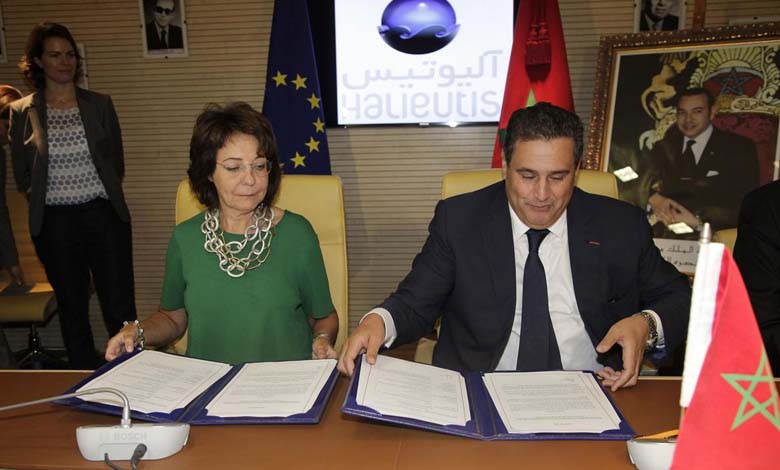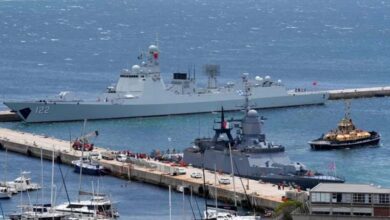Spain Refuses to Cancel Maritime Fishing Agreement between Rabat and Brussels
Morocco demands that the European Union fully assume its responsibility for preserving its partnership with Rabat and protecting it from provocations and political maneuvers

The Spanish government strongly rejects the proposal by the Attorney General of the European Union to the European Court of Justice to cancel the maritime fishing agreement between Rabat and Brussels. Madrid insists on the agreement’s legality, arguing that it does not contradict international norms.
For many European partners, especially Spain, maritime fishing is a crucial issue. Therefore, all indicators suggest that renewing this agreement will be in the interest of both parties.
Luis Planas, Minister of Agriculture, Fisheries, and Food, reiterated the Spanish government’s conviction that the maritime fishing agreement between the European Union and Morocco is “completely legal” and in line with “community and international law,” contradicting the European Union’s stance and defending the agreement challenged by the General Attorney, who requested its cancellation on the grounds that it violates the principle of “self-determination” advocated by the Polisario separatist front.
Planas stated in a press conference after meeting with officials in the fishing sector that he would not comment on the Attorney General’s conclusions but would await the ruling of the European Court of Justice. He pointed out that the statements of the EU lawyer sometimes align with judgments but sometimes do not, as was the case with the recent ruling on fishing in Ireland.
The Spanish minister noted that if the European Court of Justice agrees with the Attorney General’s opinion, Spain will lose “an important fishing area for the Andalusian, Galician, or Basque fleet,” despite its recent underutilization, similar to many fishing areas.
The Andalusian Military Council urges the central government to reach a new fishing agreement with the Kingdom of Morocco, considering the Attorney General’s proposal to be a decisive blow to social justice.
Carmen Crespo, Minister of Agriculture, Fisheries, Water, and Rural Development of Andalusia, defended a new fishing agreement with Morocco due to its impact on the Bay of Cadiz. Crespo expressed confidence that the central government is “aware” of the situation, saying, “I hope there will be a renewal.”
Manuel Fernandez, President of the Andalusian Federation of Fishermen’s Unions, announced that they would take action and expressed “surprise” at the judicial report expecting the annulment of the fishing agreement with Morocco.
Fernandez pointed out that Andalusian fishermen fish in the national fishing zone “hoping” for a “new fishing agreement” and stated that they would contact the Directorate General of Fisheries of the Ministry.
These developments follow the support of the European Union’s Attorney General, Tamara Capita, on Thursday, for the Court’s decision to annul the maritime fishing agreement between the Union and the Kingdom of Morocco. Meanwhile, Morocco, through government spokesperson Mustapha Baitas, called on the European Union to work to preserve its partnerships with the Kingdom of Morocco and protect them from “provocations and political maneuvers.”
Baitas said in a press conference following the weekly government meeting on Thursday that “the government has taken note of the opinion issued by the Attorney General of the European Court of Justice regarding the issues presented to it regarding the agricultural agreement and the maritime fishing agreement between Morocco and the European Union.”
He emphasized that “what was issued is not a judgment of the European Court and is not a judicial matter. It is a document summarizing the opinion of the Attorney General on various aspects of the issues under discussion,” adding that “this document is an intellectual and technical contribution made by the Attorney General at this stage of the procedure, in preparation for the discussions among the judges of the Court later, with a view to reaching the stage of pronouncing the final judgment after months.”
European parties challenging the Court’s previous ruling provide evidence that the agreement with Morocco in the field of fishing, including the Saharan region, was approved by the inhabitants of the region. This contrasts with the claims of the Polisario separatist front challenging the agreement, alleging that it does not represent the “Sahrawi people” and that the agreement was signed without the consent of the official representatives of the region.
On July 12th, Nasser Bourita, the Moroccan Minister of Foreign Affairs, stated during a press conference in Rabat that the maritime fishing agreement between Morocco and the European Union signed in 2019 was indefinite and thus still valid. According to Bourita, renewing the protocol will take into account three criteria. The first concerns Morocco’s view of its partnerships, emphasizing the importance of partnerships that add value to Morocco rather than following traditional models.
The second criterion is related to national strategies for maritime fishing, such as the Halieutis strategy aimed at developing the sector nationally, which will leave room for external partnerships.
Regarding the third criterion, the Minister pointed out that it concerns scientific and biological data, highlighting the importance of protecting non-renewable resources and determining the level of fishing that can ensure their sustainability.
Bourita concluded that Morocco will remain in dialogue with the European Union, engaging in discussions and sharing results, emphasizing that the partnership is not only about the protocol but a broader agreement still in effect.
The protocol signed between the two parties in 2019 allowed over 128 international vessels, including 93 Spanish ships, to sail and exploit Moroccan waters, including those in the Moroccan Sahara.












